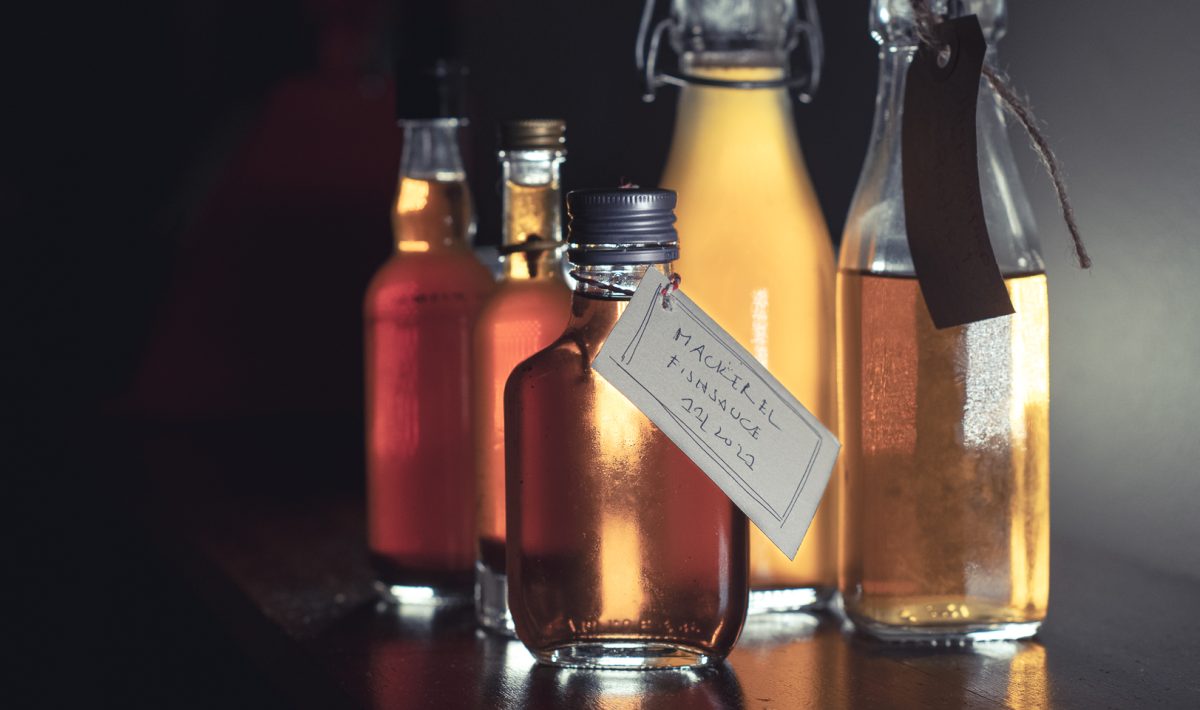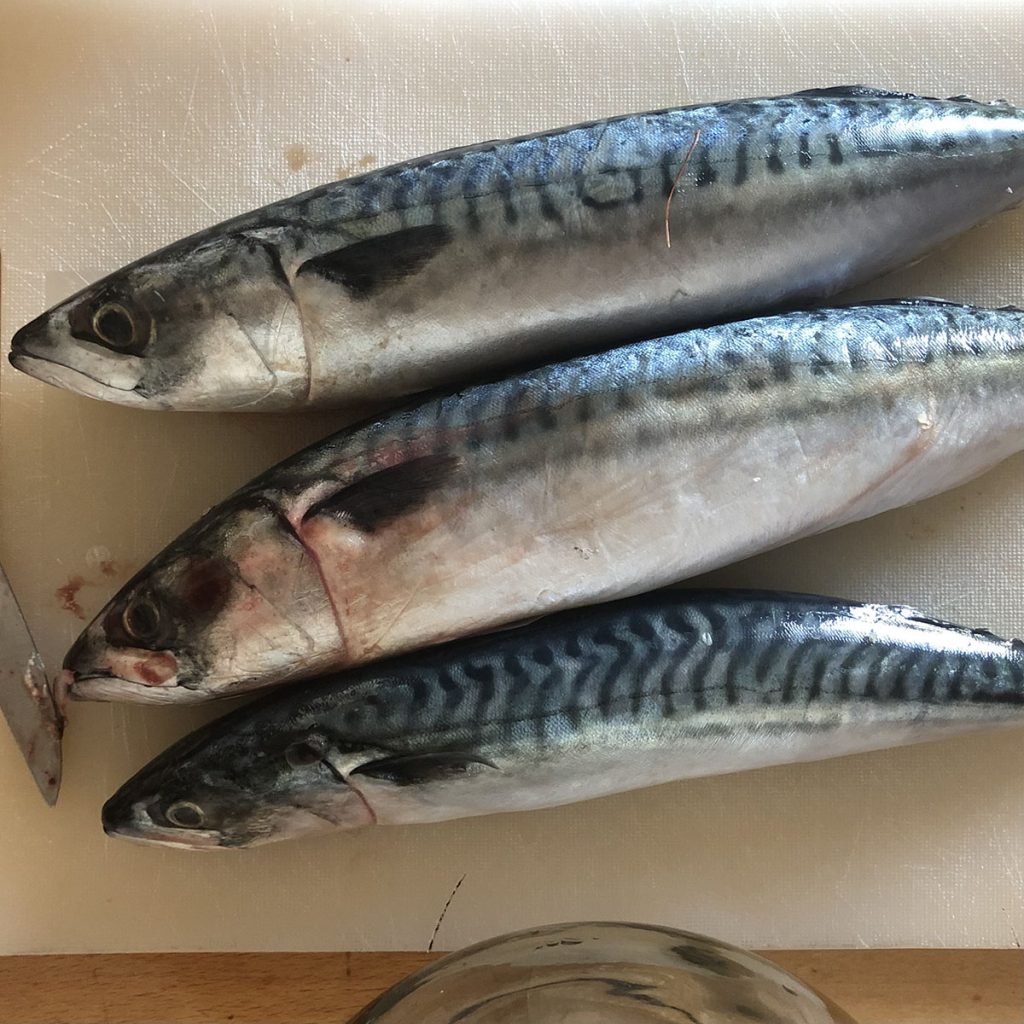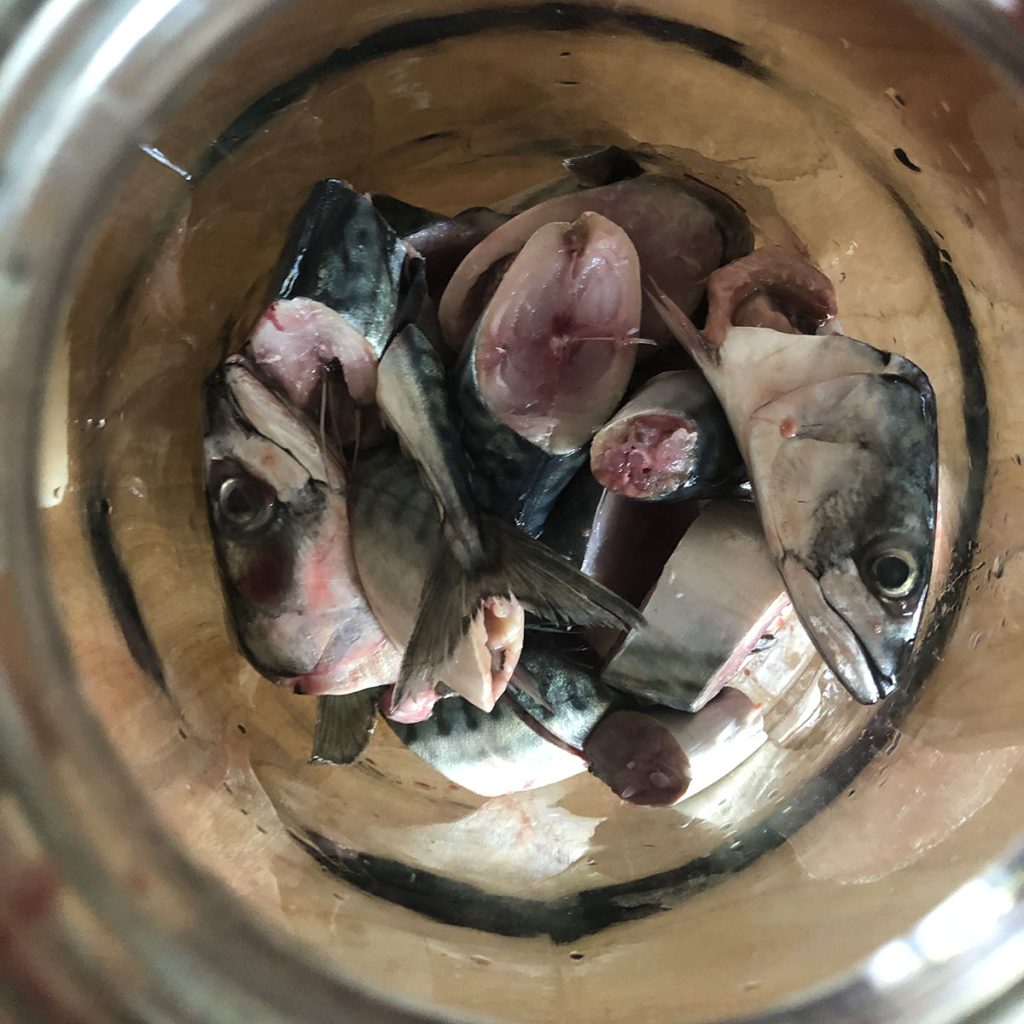In our quest for preservation techniques, fish fermentation is one of the most challenging methods. Joseph and I share a love for Asian food in which fish sauce is a common staple, but fear of botulism or bacteria made us stay clear of making our own. Caution is advised when you venture into the territory of homemade fish sauce. But if you respect the proportions of fish to salt and trust your intuition when it comes to your natural sense of smell, you should definitely give it a try.
The Romans already made their own version called Garum and the little village of Cetara in Italy is famous for its colatura di Alici.
Homemade fish sauce is produced by blending whole, oily fish such as ansjovis or mackerel with the correct proportion of salt, water and spices. It is then fermented for a period from one to twelve months before it is filtered. The end result is a clear, light brown liquid with a far more delicate flavor than the store bought version. Fish sauce in mainly produced in Asian countries such as Thailand, but the Romans already made their own version called Garum and the little village of Cetara in Italy is famous for its colatura di Alici, which literally means ‘the leaking of ansjovis’.
Making fish sauce takes guts
I always love a good challenge in the kitchen and when it came to making fish sauce there were several. Making fish sauce takes guts. Literally. You have to have a strong stomach to do this, because what it comes down to is that you wiz up a whole fish (heads, tails, guts and all) and end up with a brown muck with the occasional eyeball or head.
Besides that you have to be patient. Not my strong suit. So waiting for a month before the fermentation process was over was hard. Then filtering the sauce for twenty-four more hours, one drip at a time, wasn’t easy either. But the end result was all worth it: a beautifully clear, golden liquid that was both challenging and delicious.
We made fish sauce from scratch from North Sea mackerel. Sustainable, pretty local and completely zero waste.
Three goals that I try to maintain in most of my culinary experiments!
Fermented fish sauce
Ingredients
- 350 gram mackerel fresh, entire fish, not gutted
- 215 ml water filtered
- 85 gram sea salt
- 1 clove garlic
- 1/2 teaspoon black peppercorns
- 1 bay leaf
- 1/4 teaspoon lemon peel grated
Instructions
Preparation
- Cut the whole mackerel into 5 cm chunks and add to a big, glass sealable jar. Add everything, including the heads and guts.
- Mix the fish with an immersion blender. Yes blender :).
- Smash the garlic and add to the jar together with the other spices.
- Cover the fish mush with the filtered water and mix well.
- Close the jar and make sure is securely fastened so no insects can get inside.
Fermentation process
- Store the jar in a cool, dark place away from direct sunlight. We made fish sauce in november and stored it in a large bag on the terrace.
- Let it ferment for 1 month and make sure to burp it the first few weeks to precent any pressure build up.
Finishing the sauce
- Strain the contents of the jar through a fine mesh strainer and let it seep through for 30 minutes to make sure all the liquid has run through. Discard the solids.
- Pour the strained fish sauce through a coffee filter set inside a funnel inserted into a jar or glass bottle. This process takes a while, so we setup multiple bottles with a funnel to speed it up. Keep an eye on it and make sure the coffee filter doesn't break, because then you have to start over. It took us about 8 hours to filter this amount, which results in about 1/2 liter of finished sauce. The end result should be a clear, caramel coloured liquid with a pungent smell, yet a very subtle, almost sweet taste.
- Store your homemade fish sauce in the refrigerator and it will last for years!







Recent Comments